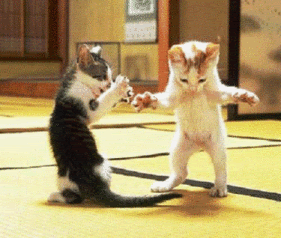When I was growing up I was poor and I knew it. I knew it from listening to my parents worry over the tiny amount of money left over for groceries after the bills were paid. I knew it from watching the kids at school get to participate in extra-curricular activities after school that I couldn't afford to be a part of. I knew it every time I slid into a frayed pair of jeans two sizes too small. But more than any other reason, I knew it because of the looks.
Looks of curiosity from my classmates when my stomach growled loud enough for the whole room to hear. Looks of pity from adults. Looks of anger and suspicion directed toward my parents when we stood outside in the cold without winter coats. I understood the pity- understood it with every ounce of scrawny my twelve-year-old body. I was to-be-pitied. Nothing was expected of me. I understood the curiosity; surely someone must have made a grievous and unforgivable error for our family to be hungry in The United States of America. But I never could understand the anger.
My Father has a debilitating form of arthritis that causes him severe, chronic pain. That man wanted to work; he begged people to hire him- and sometimes they did. But it wasn't too long before the pain and exhaustion were too much, even for his epic amount of stubbornness. Eventually he ended up on disability. It ravaged his self-esteem. But nobody made a mistake. Nobody was spending the mortgage payment on drugs or beer. Nobody frittered the paycheck away by gambling. There simply wasn't enough money to meet our needs. It took me a long time to put this puzzle of anger together, but I think I have it figured out. It is a whole lot easier to blame the poor for being poor than it is to accept the fact that it could happen to anyone.
At no fault of your own, you could be bankrupt. Some of the smartest money men in the country posit that most Americans are one major negative financial event from bankruptcy. One car accident. One cancer diagnosis. One house fire. There is a possibility that it could happen to you, and most people do not like that feeling. So that bristling when they saw our situation was their own fear, or the avoidance of it. Much easier to assign blame than accept the unknowable quality of the future. Much easier to refer to the forty-something behind the register as a “burger flipper” and decry her for not having gone to college than to attempt to fathom that she has a learning disability and would rather work anywhere than to go on disability.
I didn’t choose to be born into a poor family any more than Joe McIvyleague chose to be born into a wealthy one. I can’t blame him for his frame of reference- it’s the only one he has! And he didn’t choose his perspective any more than I chose mine.
This week, I will have a phone interview to apply for SNAP (my generation’s version of food stamps) for the first time as an adult and a parent. I am not looking forward to it. I am not going to enjoy swiping that EBT card. But I am going to enjoy preparing healthy food for our three children, and I’ll count it as a blessing as I put it on the supper table, and I’ll count myself among the blessed.
I can choose to feel pitied. I certainly remember how. I recall with total clarity the very vastness of my own insignificance. But the fact that my financial situation is inferior does not make me inferior. I am not less simply because I have less. My children are not worthless just because the ending balance has veered dangerously toward zero these last few months.
If the cashier looks at me with pity, I plan to smile at my children and tell her I am blessed. If the cashier looks at me with judgment, I plan to smile at my children and tell her I am blessed. Maybe this is just a season (my husband and I are working hard to make it so), but maybe it’s not. If it is not- if this barely-making-it thing lasts a childhood, my children will know that they are blessed. They will see it on the dinner table every night. They will see it in their parents' hard work. They will see it, more than anywhere, in their parents' attitude. Because we know we are blessed. When John and I smile at each other over our daughter’s curly-headed mischief, or when our oldest tackles a new school subject with intense curiosity, we know we are blessed. When our youngest son aggressively cuddles us in the morning, we know we are blessed. When we still like kissing each other after eight years, we know we are blessed. And you know I wouldn't trade these blessings for the monetary kind in a million years, and not for a million dollars.
So when I get into that checkout line at the grocery store, and my palms start to sweat just a little when an older, well-dressed lady gets in line behind me, I will not feel less. I will not feel inferior,or insignificant. And when we thank God for the meal, we’ll really mean it. And we’ll know we are blessed. And maybe someday I’ll be the well-dressed elderly lady in line behind the cart full of kids whose matron is apologizing for how long it takes to ring up a WIC ticket. If that day comes, I hope I remember this season. I hope, when I look at that woman ahead of me in line, I will recall how much strength it took to believe things could change. I hope I buy her a box of diapers. But I know I won’t pity her. She is a beautiful, blessed, brilliantly loved child of God.
Roll for initiative,
J. Wahl
p.s.
Edits on my book are HALF DONE! *dance party*
Roll for initiative,
J. Wahl
p.s.
Edits on my book are HALF DONE! *dance party*





